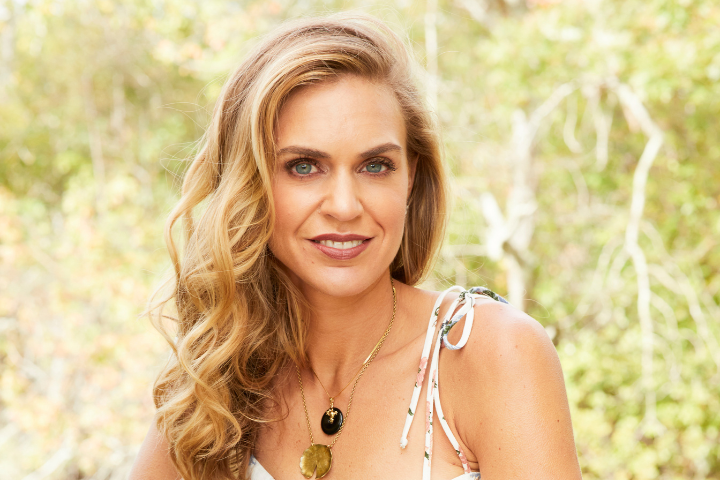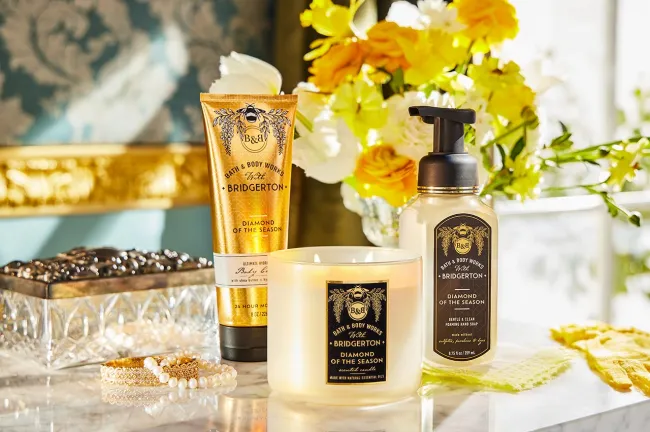As told to Victoria Kirby
We all know people who famously switched careers and found their true calling: Ina Garten started out in government, John Grisham was an attorney, and Vera Wang spent nearly two decades as an editor. But despite these success stories, the idea of changing job direction can be overwhelming. Where do you begin? What if you have to take a pay cut? How do you make new business connections? The prospect can be so intimidating that some people never end up taking the leap.
Emily Parr knows what it’s like to be at a career crossroads. Four years ago, she was at the top of her game running her own successful PR agency, Poke PR, which put brands like Drunk Elephant, Summer Fridays, and Briogeo on the map. But as the beauty industry began shifting away from the kind of storytelling PR that she loved to do, Emily pivoted from publicist to brand co-creator with her friend Majeed Hemmat, the founder and head of a beauty brand management and business development agency.
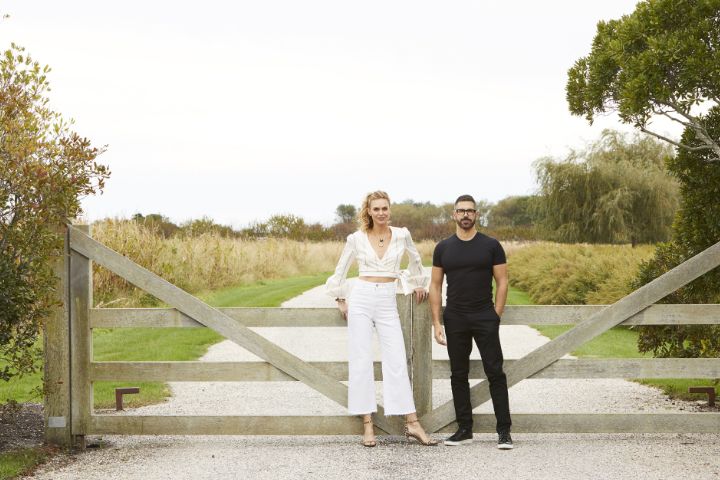
In September 2019, the duo launched HoliFrog, a line of prestige face washes that’s now a full skin care line offering what they’ve coined “situational skin care”: using different products day to day based on what your skin needs in the moment rather than following a set regimen. In February of this year, Emily and Majeed brought situation-minded skin care to the mass market with the launch of Current State, available at Target and Whole Foods. As Emily reflects on her experience of changing careers, she shares how to navigate the transition and establishing yourself in your second act.
Make a switch based on your strengths
I’m not the kumbaya type who tells people, “Keep manifesting your career dreams and your time will come!” Of course, positive energy is wonderful, and I follow the Winner’s Creed that my dad instilled in me — but manifesting alone did not get me to where I am now. I think to change career direction, you need an aha moment in which you realize that your skills and passion can succeed elsewhere.
For me, that moment came seven years into running Poke PR. I felt like I had done it all in terms of representing the best ingredient-focused, founder-led beauty brands. By 2019, there weren’t any new brands launching in that niche that appealed to me, and the big-name brands coming to us for representation weren’t really my ethos. Around this time, PR also changed and became more transactional: pay-to-play, affiliates, and click bait became the focus. The investigative stories that I loved doing with my clients were no longer of much interest, and I felt like all the reasons I loved PR were fading away.
As I contemplated my next move, I realized that I spent all my time, including all my free time, thinking about my clients’ brands. I’d go on daily 10-mile runs with no headphones so I could use the time to strategize for clients. On weekends, Majeed [Hemmat] and I would talk endlessly about brands. I worked nonstop and didn’t really have a social life, but I didn’t mind because I absolutely love the beauty industry and all its facets.
That’s when it hit me: I was spending all my time helping grow my clients’ brands, in which I had no stake, when I could be doing this for a brand of my own.
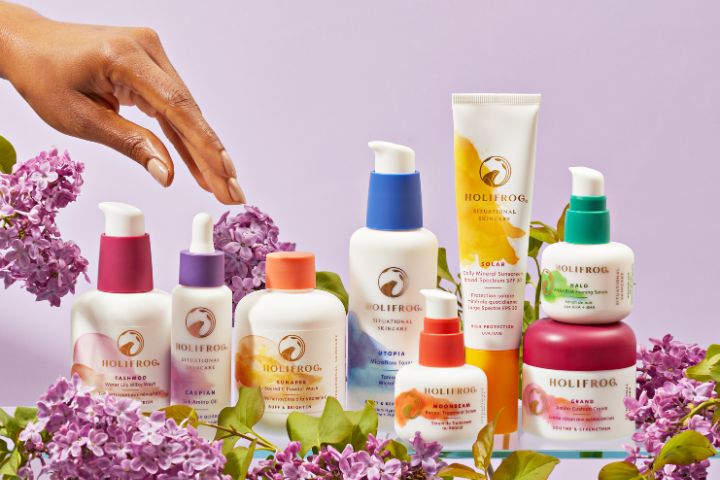
Take time to figure out your focus
It took me six months from the time Majeed suggested that we launch a line of face washes to wanting to do it. In fact, I shot down his idea at first because it didn’t sound interesting. But as a runner who washes my face several times a day, I began noticing that my ever-growing lineup of daily skin care was making my skin freak out. So I started using products on a situational basis, like a cream cleanser in the morning and a gel wash at night, which got me thinking about skin care from a situational, need-based perspective. That’s when I realized that Majeed and I had a different angle to offer, so perhaps we could launch a brand of cleansers.
You can’t force change. Once you have an aha moment about doing a different type of job, sit with the idea until it starts to take shape. Majeed planted the seed for co-creating a brand, and by letting it simmer for a while, we figured out how we could create a unique position in the market.
If the path isn’t clear, start with what you do best
If you know what else you’d like to do but aren’t sure how to break into it, think about what you do well in your current job, because I guarantee there’s a need for your expertise somewhere in the next field. Say you come from tech and want to create a beauty brand, start with the tech elements of building a business. With HoliFrog, one of the first things I tackled was the copywriting because I’m most comfortable with storytelling. Write out a list of your strengths, then search for those terms in job listings to see where your skills transfer in your area of interest.
Learn who the key players are in your new field
I began my career in fashion PR, then I switched to fitness PR, and later to beauty PR. Each time, I made a concerted effort to figure out who all the editors and writers were in that field, why they were important, where they came from, and what type of writing they did. I learned who hung out with who and which ones were best friends — I was hyper-fixated on getting to know and understand what made the key players tick.
This will give you insight into the dynamics of your new industry and which people are moving the needle so you can stay on top of the news. It’ll also familiarize you with how the industry operates in terms of connections and alliances.
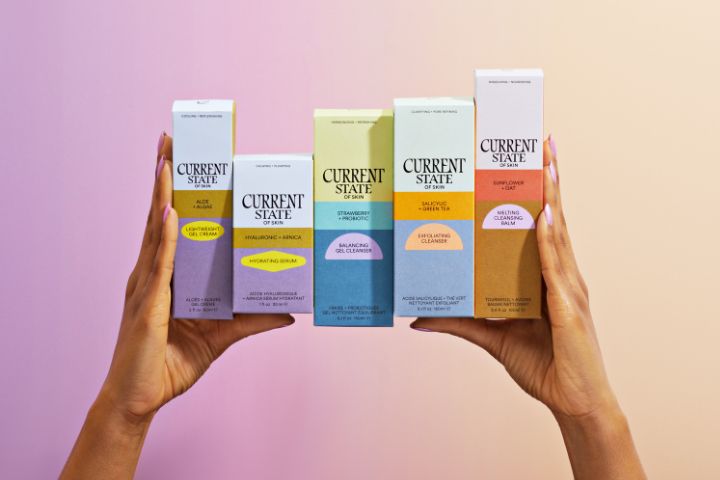
Don’t quit your current job until it’s absolutely necessary
Switching careers may require taking a pay cut or having to self-finance a new venture, so hold onto your current source of income for as long as you can, even if that means working two jobs for a little while. Which sounds stressful, but it’s not nearly as stressful as feeling financially insecure.
We launched HoliFrog in September 2019 and I had planned to close Poke PR shortly thereafter. But the clients wanted to stay on, so we kept the agency going through the end of 2021 and retained two clients until the fall of 2022. It wasn’t until we got close to launching Current State that I stepped away from PR for good.
By keeping my Poke PR revenue stream running during my first few years as a brand co-founder, I had the means to invest more money into HoliFrog or Current State when needed without stretching myself thin. Granted I had the flexibility of being self-employed, but had I been working for a company, I would have asked if I could have continued to consult for them while getting my own project off the ground. Whatever you can do to prepare financially for a career transition will be worth it not to have major money anxiety.
Treat networking as a two-way street
When starting fresh in a new line of work, it can be intimidating to network. People assume that because I came from beauty PR, I must have had plenty of connections to create a beauty brand. But PR begins with the finished product, so I was never involved in the creation process and had to make all new contacts practically across the board.
What I realized is, we all have a currency. When you reach out to someone for help or advice, begin with a sentence or two about who you are — “I’m a brand marketer from the fashion industry” or “I’m a former PR executive for lifestyle brands” — before going into why you’re contacting them.
Your expertise is your currency, and you’ll be amazed by how often the person you’re contacting may need your help, too. Maybe not right away, but now you’re in their network to call upon later. Putting something on the table that could be of value to the other person goes a long way with new introductions, and it reminds you of your worth when asking people for help.
Make the most out of new connections
Most people enjoy being helpful, so when you meet someone in your new industry, be curious and ask questions to see what they may have to offer. One connection can inspire the next and lead you to additional resources or information that may help you gain footing and exposure in your new career. Also, I find that if I reach out to someone and they don’t have the answer to my question, they typically know someone who does and will happily introduce me to that person.
Being inquisitive in every new conversation allows you to grow a network where first connections lead to second and third connections, and before you know it, you have an extensive web of contacts in your next line of work.
Have the right mindset about changing careers
All the logistics I’ve talked about are critical, but so is approaching the transition with conviction and realistic expectations. I tell everyone considering a move to…
- Be prepared to work harder than before. Don’t switch lanes because you think the next career will be easier. It never is, even in your dream job. Rather, approach the change as doing what will make you stronger, and surround yourself with people who know more about your new field than you do.
- Be agile. Most industries, and beauty especially, change rapidly. Understand that no matter where you end up, you will continually be shifting and adapting to new facets of the business.
- Be completely confident in what you’re doing. Whether you’re starting your own business or going into another line of work, if you’re not passionate about the endeavor almost to the point of obsession, then you should not pivot careers. There are brand founders who’ve raised millions just by selling their idea, without even a prototype in hand, because their passion is so palpable. The beauty industry is super saturated with a million marketers, a million brands, a million of everything—so to thrive in your second act, you must believe in it one hundred percent, because when you do, others will believe in you, too.
